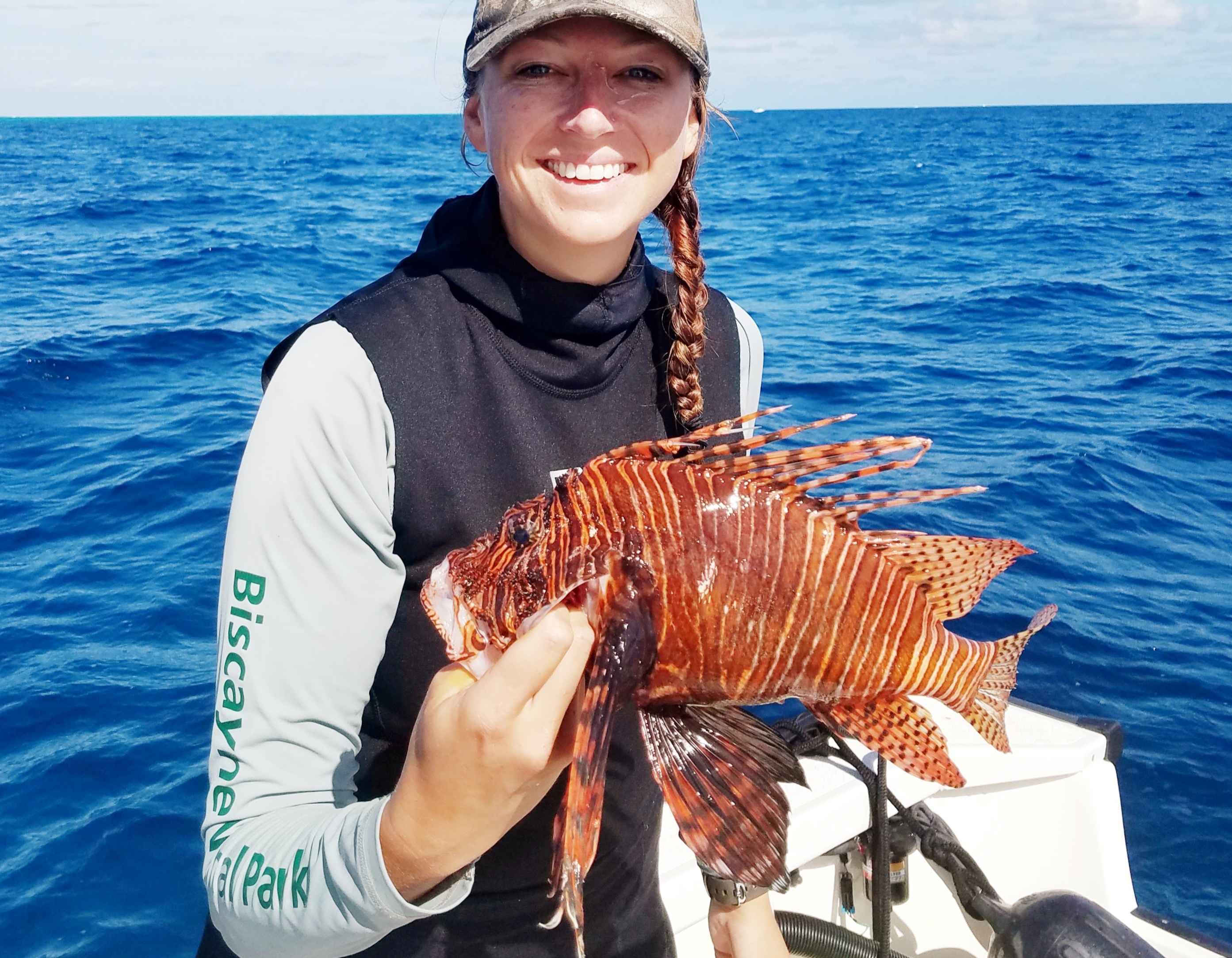
How do you feel your SNR education prepared you for your career?
The education I received from SNR was much more that the time I spent sitting in lectures, SNR is an all-encompassing classroom that connects dots in natural resource management. My time with SNR prepared me to continue looking at environmental topics with that same mindset to find my current position with Florida Fish and Wildlife Commission.
What position do you currently hold? What do you most enjoy about it and what do you find most challenging?
I am currently an environmental specialist with Florida Fish and Wildlife. I enjoy being able to prepare for my work offshore diving from an NPS boat to complete my state funded research project. The most challenging aspect is waiting for the weather to play nice so we can make the dives.
Who were some of your favorite (or most memorable) professors and classes?
Dr. Trish Freedman in Vertebrate Zoology
Dr. Lisa Pennisi in Environmental Education
Dr. Dennis Ferraro for Herpetology and Island Ecology
Dr. Larkin Powell for Wildlife Ecology and Management
Describe your post-SNR career path. Did you attend graduate school (when/where)? If so, what did you study and how did you determine your research interests?
I interned with U.S. Fish and Wildlife Service down in Texas before making my way back up to the MidWest to work with a private environmental consulting company on wind farms. I then began working for the National Parks Service at a technician for a few years before making the jump to South Florida, the United States meca of marine sciences. I am currently applying for a Masters Program based upon my work here as an invasive lionfish specialist. I had a hand in helping with many projects throughout my career and witnessed first hand the research processes being conducted by the variety of agencies. By followed my interests, staying open minded, and continuing to make connections I feel confident about my future research project.
When did your professional career begin to take shape?
Right after my undergraduate I accepted an internship with US Fish and Wildlife. I was able to continue finding jobs after my internship was complete and worked my way into the National Parks Service.
Describe your non-academic activities during your time at the university. For example, were you involved in any SNR-related student groups? Did you study abroad?
I became interested in UNL’s Wildlife Club as I became more familiar with my classes and time spent on East Campus. CASNR has a lot to offer so I took attending the many events and meetings. I felt welcomed and inspired to follow my fisheries and wildlife degree by having other students, professors, and advisors with similar goals all in one group.
Later in my undergrad career I felt more confident in approaching faculty about part-time jobs and volunteer opportunities around campus. I spent a few weekends cataloging specimens at Morrill Hall with a worldly and charismatic vertebrate zoology professor, as well as worked at a lab technician over at the Veterinary Science department.
Discovering what truly drove me to school, I began taking opportunities within my classes to stay involved with current issues. I participated with a broad range of educational events as a chance to work on public speaking such as wildlife event booths and state expos. Those opportunities allowed the chance to network with a variety of wildlife agencies such as Nebraska Game and Parks, U.S. Fish and Wildlife, and other universities.
I spent a semester on the coast of Baja California to study marine science my second year. My passion for marine environments emerged regardless of living my whole life in the state of Nebraska. The University of Nebraska - Lincoln help encourage and mentor me through the study abroad application process and I spent one semester in Baja, Mexico studying sea turtles, whales, and current marine issues. When I returned the next semester, my helpful advisor found the perfect fit for the credits towards my degree.
Would you change anything about or take anything back from your time at SNR?
I wouldn’t change a thing. I believe my degree within SNR has proved very valuable throughout the world.
What advice would you give to current SNR students who aren’t sure or don’t feel confident about their postgraduate future?
SNR has open doors for any question you might have concerning your desired career path, no possibility is too great.